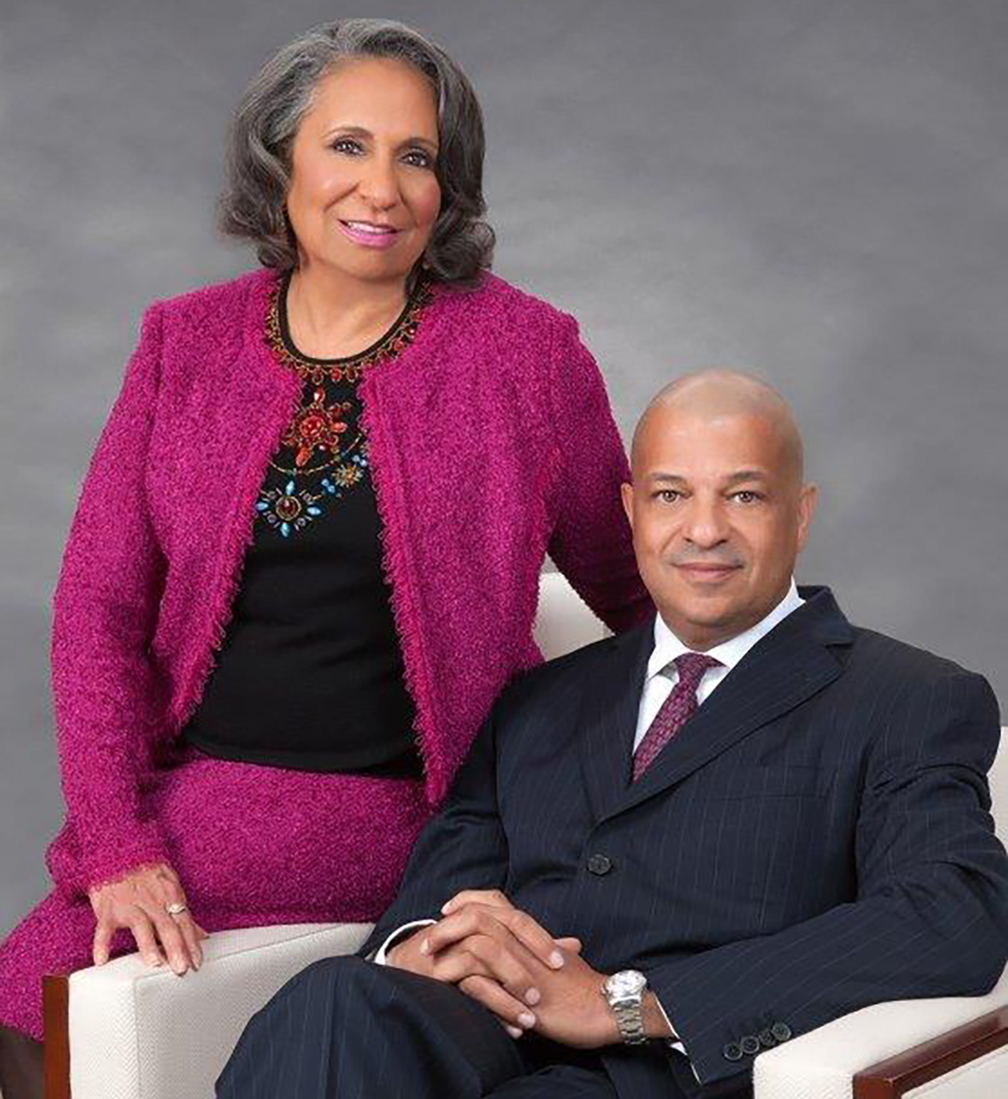Urban One CEO Alfred Liggins with the founder of Urban One, his mother Cathy Hughes.
By Mike Platania
(RBiz) – By this time next week, citizens of Richmond will have gone to the polls to vote on whether they want a casino complex built on the city’s Southside.The referendum, set to take place Nov. 2, has been years in the making. Urban One, a Maryland-based media conglomerate, had the winning bid for the project, beating out five other applicants in a city RFP.Teaming with Colonial Downs owner Peninsula Pacific Entertainment, Urban One’s pitch includes a 100,000-square-foot gaming floor, a 250-room hotel, a theater, a festival lawn and commercial space for 15 restaurants and bars. The project would rise on a site currently owned by Philip Morris at 2001 Walmsley Blvd. in the Southside, just off Interstate 95.Included in the project’s price tag of $600 million is a $25.5 million up-front payment to the City of Richmond, plus over $100 million in additional payments to the city via equity commitments.Leading up to the vote, the developers have spent millions on advertising and outreach, touting that it would ask for no financial incentives from the city, while drawing in tourists and spurring growth in an industrial area of Southside.Urban One CEO Alfred Liggins said the group projects 80 percent of the casino’s visitors would be from outside Richmond, and that the city would receive 10 percent of all revenue generated. Liggins said that cut would amount to about $50 million annually.With the referendum less than a week away, Liggins talked with BizSense about how Urban One is feeling about its odds at the polls and some technical aspects of the projects, including what’s next if it passes or if it doesn’t. The following is an edited transcript:
Reporter: How are you feeling about the upcoming vote?Alfred Liggins: We’ve had a phenomenal level of support. There’s not 100 percent agreement on any issue, but you can’t really argue with the economic development benefits of our proposal to the city.There are people that take issue with the gaming aspect of our project. But this is a complete, integrated, resort casino and entertainment complex, not just a gaming complex, and it’s 100 percent privately financed.
R: Let’s say Election Day comes and goes and the referendum passes. What happens next?AL: We will put our application in to the Virginia Lottery by Dec. 15 for our gaming license, (and) we will look to close on the land that we’re buying from Phillip Morris by the end of the year.All during that time, we will be completing construction/architectural drawings in order to submit for permits. By April 1 (2022), we’ll start demolition of the site and site work. Then we will probably begin digging dirt and start full-fledged construction by July 1.
R: If the referendum doesn’t pass, what would happen next?AL: If it doesn’t pass in the city of Richmond, I believe that the General Assembly will ultimately look to put it in a locality in and around Richmond in Central Virginia in one of the outlying counties that does want it. I do not believe that the General Assembly and the governor will want to leave Central Virginia without a gaming opportunity.The state has decided this is good for the state from a revenue generation standpoint and they’ve given five localities the opportunities to develop a casino resort, and if Richmond citizens vote no, then it will end up in Henrico or Chesterfield, similar to what happened with the Navy Hill project.
R: Would you expect getting your license from the Virginia Lottery board to go off without a hitch?AL: We’re a licensed entity in the gaming space in the state of Maryland, so we’ve been through this process before as reputable and have been licensed. Nothing’s changed in our suitability so I suspect that we will have a similar outcome in Virginia.The only issue is the lottery has up to a year to grant that license, so if we apply Dec. 15 of this year, they have until Dec. 15, 2022 to grant the license. We’re not really in control of their process and how long they take. Hopefully, they don’t take that long.
R: Can you explain how the upfront payment to the city would work?AL: There’s $25.5 million that’s in escrow at this point in time, for the city. That’s our upfront payment. $140 million is our equity commitment. The ($25.5 million) upfront payment in escrow is what the city will receive 30 days after the referendum is certified.It’s equity, it’s no different than if you’re buying a house. It’s an equity commitment from Urban One and our partner Peninsula Pacific Entertainment. They’re providing a $30 million slice of preferred equity and we’re providing $115 million of common equity.
RBS: How would you finance a project of this size?AL: Urban One is a longtime issuer of public financing. We’ve been in the public debt markets since 1997, and gaming resorts are most commonly financed in the public debt markets. So we’re working with Credit Suisse and Bank of America, who’ve provided us financing commitments to go out and raise that debt.
RBS: Has your group done any polling leading up to the vote? If so, how do you go about doing that?AL: We’ve done more polling than anybody else and we do it just like the gubernatorial candidates would. We probably don’t do it as often, but we polled last year back in March during the Democratic primary in Richmond.We’ve polled four times this year and it shows the majority of Richmonders are supportive of casino gaming and entertainment complexes and the benefits it brings. That’s encouraging, and oddly enough, the polling has been frighteningly consistent.



